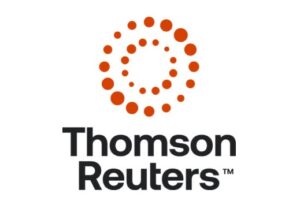What Makes A Good In-House Lawyer Great?
Technical proficiency is not enough.
 Without question, an in-house lawyer must be technically proficient in a variety of legal areas when seeking to excel. In my experience, most in-house lawyers focus on developing that technical proficiency when they land that first in-house position. If you are anything like me, it does not take long to figure out that technical proficiency is not enough. I learned quickly that I also had to cultivate and maintain positive relationships with those people with whom I interacted on a daily basis. Given the complexities of the modern workplace, it was not just beneficial, it was mission essential.
Without question, an in-house lawyer must be technically proficient in a variety of legal areas when seeking to excel. In my experience, most in-house lawyers focus on developing that technical proficiency when they land that first in-house position. If you are anything like me, it does not take long to figure out that technical proficiency is not enough. I learned quickly that I also had to cultivate and maintain positive relationships with those people with whom I interacted on a daily basis. Given the complexities of the modern workplace, it was not just beneficial, it was mission essential.
So … Do Hone These Technical Skills
Legal research and analysis. In-house lawyers need to be proficient when conducting comprehensive legal research using various resources to interpret laws, regulations, and precedents that are relevant to the company’s industry and operations.
Law Firm Business Development Is More Than Relationship Building
Contract drafting, review, and negotiation. In-house lawyers need to be able to draft, review, and negotiate contracts that align with the company’s objectives while still mitigating legal risks.
Litigation management. In-house lawyers need to be familiar with the litigation process. When matters need to be placed with outside counsel, in-house lawyers also need to be able to oversee a case management plan and monitor a litigation budget.
Risk assessment and mitigation. In-house lawyers need to identify potential legal risks and develop strategies to mitigate them. They also need to support efforts to implement policies and procedures to minimize exposure to legal liabilities.
Problem-solving and analytical thinking. In-house lawyers need to review complex legal issues with an analytical eye and use creative problem-solving skills to find practical solutions.
Sponsored

Curbing Client And Talent Loss With Productivity Tech

Luxury, Lies, And A $10 Million Embezzlement
Law Firm Business Development Is More Than Relationship Building

Luxury, Lies, And A $10 Million Embezzlement
Industry-specific knowledge. Every industry is subject to a unique set of regulations imposed by governmental bodies or industry-specific authorities. In-house lawyers must be well versed in these regulations to ensure compliance.
Project management. In-house lawyers need to have the ability to manage legal projects effectively, including setting timelines, allocating resources, and coordinating with internal teams and external partners.
But … don’t hone these technical skills at the expense of your people skills.
Here are some actionable steps to enhance your people skills and forge robust professional relationships.
Meet your internal partners where they are at. Understanding the perspectives, needs, and challenges of your colleagues within the organization is fundamental. Instead of imposing your viewpoint, take the time to listen actively and empathize with their concerns. This fosters mutual respect and lays the groundwork for effective collaboration.
Sponsored

Thomson Reuters' Claims Explorer: A Powerful Tool For Legal Claim Identification


Tackling Deposition Anxiety: How AI Is Changing The Way Lawyers Do Depositions
Don’t make promises you can’t keep. Trust is the cornerstone of any relationship, professional or otherwise. Making commitments you can’t fulfill erodes trust and credibility. Be realistic about what you can deliver, and if circumstances change, communicate openly and promptly to manage expectations.
Under promise and over deliver. While it’s crucial to be truthful about what you can achieve, there’s value in exceeding expectations. By consistently surpassing what’s anticipated, you demonstrate reliability and dedication, enhancing your reputation as a dependable partner.
Avoid giving advice no one asked for. While well-intended, offering unsolicited advice can sometimes be perceived as intrusive or patronizing. Instead, offer support and guidance when it’s actively sought. Respect others’ autonomy and empower them to make their own decisions, stepping in only when requested.
Leave your mark on what you do, but resist the urge to point it out. Taking pride in your work is commendable, but humility is equally important. Let your contributions speak for themselves without seeking constant validation or recognition. A modest demeanor fosters admiration and respect from peers and superiors alike.
Be more than your job title. While titles denote responsibilities, they don’t encapsulate your entire identity or potential. Engage with others authentically, showcasing your unique skills, interests, and passions beyond the confines of your role. This multifaceted approach fosters deeper connections and enriches professional interactions.
While technical skills may open doors, it’s the people skills that pave the way for enduring success. By prioritizing empathy, integrity, and humility in our interactions, we not only strengthen professional bonds but also contribute to a more harmonious and productive work environment. Let’s strive to be not just proficient professionals but empathetic and understanding colleagues, forging relationships built on trust, respect, and mutual support.
 Lisa Lang is an in-house lawyer and thought leader who is passionate about all things in-house. She has recently launched a website and blog Why This, Not That™ (www.lawyerlisalang.com ) to serve as a resource for in-house lawyers. You can e-mail her at [email protected], connect with her on LinkedIn (https://www.linkedin.com/in/lawyerlisalang/), or follow her on X/Twitter (@lang_lawyer).
Lisa Lang is an in-house lawyer and thought leader who is passionate about all things in-house. She has recently launched a website and blog Why This, Not That™ (www.lawyerlisalang.com ) to serve as a resource for in-house lawyers. You can e-mail her at [email protected], connect with her on LinkedIn (https://www.linkedin.com/in/lawyerlisalang/), or follow her on X/Twitter (@lang_lawyer).







